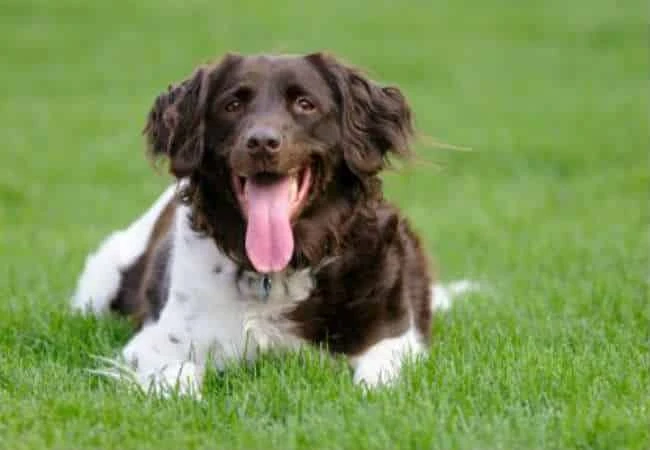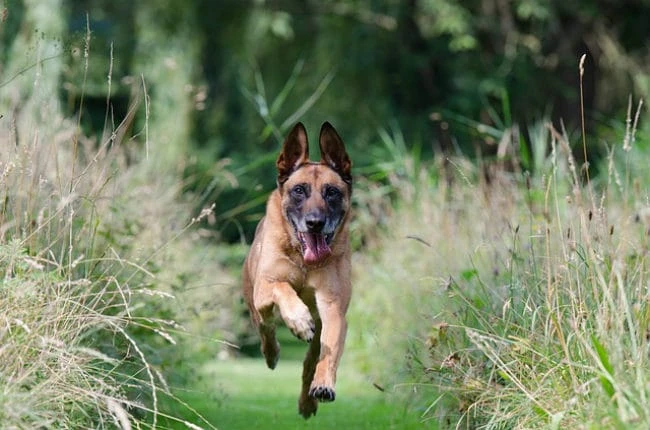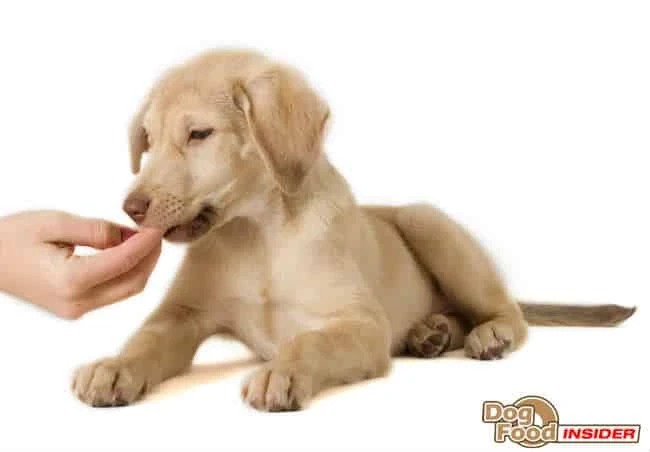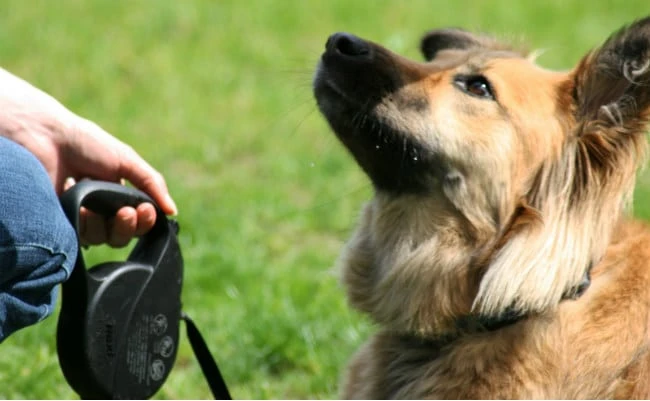Dog Owners Guide To Excessive Panting In Dogs

Excessive panting in dogs can be caused by a number of different factors – it might be due to heat exhaustion, heatstroke or due to the symptoms of an underlying illness, disease or undiagnosed health problem. Unlike humans dogs do not have sweat glands so are not able to perspire (sweat) to cool themselves down. Consequently a dog will start panting to enable his blood vessels in the mouth to cool and therefore start cooling the head ad surrounding area.
There are a variety of causes of excessive panting in dogs with some breeds more susceptible than others. For example short snub breeds are more likely to over heat or start to pant – these breeds which include Pugs, Pekingese and Bulldogs are referred to as brachycephalic breeds. The main reason for this excessive panting is due to this type of breed having a short nasel cavity with a short muzzle causing them to be more prone to getting hot which can further be exacerbated by obesity.
It is also worth mentioning that after giving birth a female is far more prone to panting this is due to their uterus becoming contracted after giving birth.
What Are The Main Causes Of Excessive Panting In Dogs??
1. Canine conjestive heart failure can cause your dog to pant more than usual. This is due to the diseased heart also starting to affect other organs inside your dog. You might notice that your dog starts to pant more after exercise as more strain is put on your dog’s heart. Heartworm is one cause of this condition – if you have any concerns then you should take your dog to the vet immediately.
2. You might notice that your dog pants if he or she is in pain – dogs often pant when they have experienced trauma, are suffering from pain or are experiencing shock.
3. Watch out for any signs of trauma to your dog if she is panting more than usual – for example if your dog has damaged his or her nervous system this can result in your dog panting excessively.
4. Your dog might be experiencing a fever or raised temperature – watch out for other signs of illness in your dog – i.e. vomiting and diarrhea and take your dog to the vet if you have any worries.
5. Specific medications including Prednisone and other steroids can cause your dog to pant. Always speak to your vet about any possible side effects that might result from a certain medication.
6. Heat stroke and hyperthermia can cause excessive panting in dogs.
7. If your dog has Cushings disease or other thyroid problems then your dog might start to pant more than usual. It is also a vicious cycle as some health conditions might involve your dog prescribed certain medications and steroids that also cause the panting.
8. Bleeding disorders can also cause this problem – for example if your dog has started to suffer from Anemia then he may start to pant due to weakness and lethargy.
9. Poison and some toxins can also cause excessive panting in dogs – if you have any concerns that your dog has ingested a poison or nasty toxins then take him straight to the vets.
10. Neurological disorders are also thought to be a cause of this problem this might be due to the nervous system possibly being affected and then ultimately possibly affecting your dogs breathing. If your dog has experienced trauma to the respiratory muscles this can also cause your dog to pant more than usual.
Dog Health Problems Online > Heat Stroke In Dogs > Excessive Panting in Dogs




